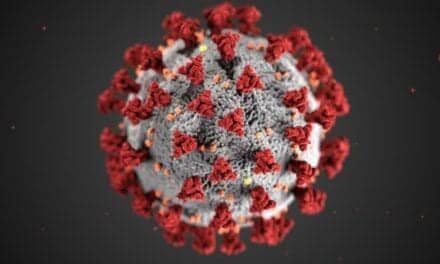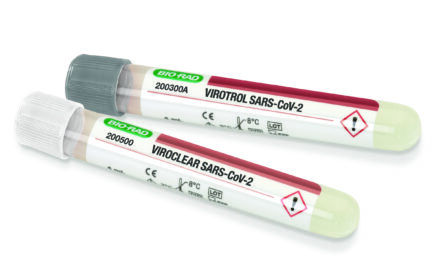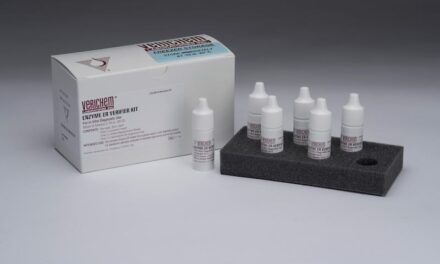FDA’s Center for Biologics Evaluation and Research (CBER) has recently granted premarket approval (PMA) for the ID Core XT, a molecular-based assay used in blood transfusion medicine to help determine blood compatibility. Developed and manufactured by Progenika Biopharma SA, Bizkaia, Spain, a Grifols company, the assay can be used to determine blood donor and patient non-ABO red blood cell types.
The ID Core XT blood group genotyping kit has been CE marked in Europe since 2014. With FDA’s approval for use of the test as an in vitro diagnostic in the United States, ID Core XT becomes the second molecular assay to receive agency approval for use in transfusion medicine, and the first to report genotypes as final results.
“Approval of the ID Core XT test can streamline blood compatibility testing and provides an additional alternative to testing blood with antisera,” says CBER Director Peter Marks, MD, PhD. “We know that DNA testing holds great promise to provide more-informative, accurate, and cost-effective methods that can enhance patient care.”
Human blood can be classified into different groups based on the antigens on the surfaces of red blood cells. In addition to the ABO blood group antigens, the presence or absence of other specific blood group antigens can be important when matching blood for transfusions, since some people develop antibodies to non-ABO antigens. People who receive repeated blood transfusions, such as individuals with sickle cell disease, are more likely to develop such antibodies. If red blood cells with poorly matched non-ABO antigens are transfused, red blood cell destruction and a transfusion reaction can occur in the transfusion recipient.
Traditionally, red blood cell antigens have been identified using serological methods that involve the use of antisera, a blood serum that contains antibodies for testing. Serologic testing presents limitations, and certain antisera may be scarce or unavailable.
ID Core XT is an integral part of the BloodChip product line manufactured by Progenika. The diagnostic kit uses polymerase chain reaction technology to amplify DNA samples, and permits precise identification of the genetic markers that code for red blood cell antigens. The technology is easy to use, consisting of pipetting steps requiring only 30 minutes of hands-on time, and produces results in 4 hours.
In addition to ID Core XT, the positive controls (ID Core Control) and proprietary software (Bids XT) have also been granted FDA approval. Bids XT is a unique software program designed to store the test database, helping to maintain traceability and transfer data to the laboratory information system, among other capabilities.
A study was conducted to compare the typing results of the ID Core XT test with licensed serological reagents, the first FDA-approved molecular assay, and DNA sequencing tests. The results demonstrated comparable performance among the methods.
“We are proud to welcome ID Core XT to our family of FDA-approved blood typing products and services,” says Carsten Schroeder, president of the commercial diagnostic division at Grifols. “This test reinforces our commitment to provide high-quality solutions that improve transfusion medicine practices and patient care.”
Molecular red blood cell typing provides significant advantages for patient and donor management. Individuals requiring frequent transfusions are at a higher risk of receiving incompatible blood, which can result in life-threatening and costly adverse reactions.1
The ID Core XT kit will benefit patients who require ongoing transfusions, including individuals with hemoglobinopathies such as sickle cell disease (SCD) and thalassemia. SCD affects approximately 100,000 Americans and is a major health concern in the United States.2 Beta-thalassemia affects approximately one in every 100,000 individuals worldwide.3
The kit will also be used for cancer patients who require more-thorough blood typing. Other patients who may benefit from the kit include those with warm autoimmune hemolytic anemia, those who have recently received a transfusion, and those undergoing daratumumab therapy.1,4
ID Core XT provides detailed information about the most clinically relevant blood groups, and simultaneously types 37 antigens of 10 major blood group systems, including Cartwright, Colton, Diego, Dombrock, Duffy, Kell, Kidd, Lutheran, MNS, and Rh. The predicted antigen profiles are used to build donor databases for the optimized management of antigen-negative units that are often needed to support the above-mentioned patients.
The test will be available from Grifols as a kit to be used in the laboratory, and as a send-out testing service from the Grifols immunohematology center in San Marcos, Texas.
For further information, visit Grifols.
References
- Letter from Miriam A. Markowitz, CEO, on behalf of AABB, to the CPT Advisory Committee, in Support of Creating a CPT Tier 1 Code for Blood Group Genotyping [online]. Bethesda, Md: AABB, 2014. Available at: www.aabb.org/advocacy/reimbursementinitiatives/documents/aabb-endorsement-of-cpt-tier-1-code-for-blood-group-genotyping.pdf. Accessed November 19, 2018.
- Sickle Cell Disease (SCD) [online]. Atlanta: Centers for Disease Control and Prevention, 2017. Available at: www.cdc.gov/ncbddd/sicklecell/data.html. Accessed November 19, 2018.
- Beta Thalassemia [online]. Danbury, Conn: National Organization for Rare Disorders, 2018. Available at: https://rarediseases.org/rare-diseases/thalassemia-major. Accessed November 19, 2018.
- Mitigating the Anti-CD38 Interference with Serologic Testing [Association Bulletin #16-02]. Bethesda, Md: AABB, 2016. Available at: www.aabb.org/programs/publications/bulletins/documents/ab16-02.pdf. Accessed November 19, 2018.
Featured image: The BloodChip ID Core Control for the ID Core XT assay by Progenika Biopharma SA, has been granted premarket approval by FDA’s Center for Biologics Evaluation and Research.







